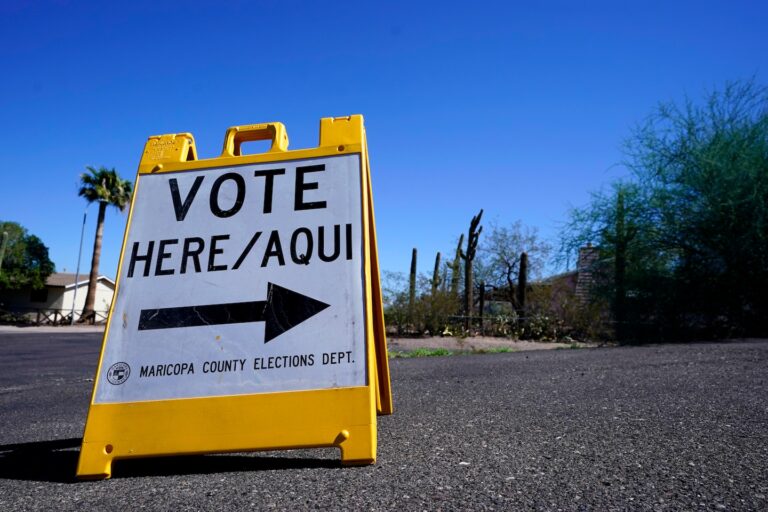Our research found that, indeed, Latino people use social media differently than do White Americans. What’s more, Latino people who rely on Spanish-language social media are more likely to believe misinformation about election issues and are more likely to rely on social media for information about the coronavirus.
Latino people use social media differently than White people do
To understand how and where Latino people get information online, we surveyed 2,636 individuals across America who identify as Latino/Hispanic/Latinx. Respondents were recruited with online advertisements in both Spanish and English to take an online survey. Our sample included roughly equal numbers of English-dominant, bilingual and Spanish-dominant respondents. We also sampled approximately 1,000 non-Latino people as a comparison group. We weighted respondents on education, gender, age, and region to match the national proportions of Latino people and all people based on census figures from the ACS.
We asked our respondents which social media platforms they had accounts on. And we asked detailed questions about their sources of political and coronavirus information.
As you can see in the figure below, Latino people were slightly less likely to use Facebook than White people (79 percent versus 96 percent) and were also slightly less likely to use YouTube (73 percent versus 75 percent).
But Latino people were substantially more likely than White people to use WhatsApp (53 percent versus 14 percent), TikTok (42 percent vs 24 percent), and Telegram (16 percent versus 5 percent). That was true even among U.S.-born Latino people, 33 percent of whom said they use WhatsApp. An even higher proportion of Spanish-language dominant Latino people uses WhatsApp: 70 percent.
Latino people were also more likely to use these platforms for political information and discussion
We found that Latino people were more likely to follow politicians on social media than White people. Of Latino people on Telegram, for example, 39 percent said that they followed at least one politician on the platform, while only 32 percent of White people said the same.
Even more striking was how Latino people used platforms to talk about politics. While only 15 percent of White people reported using WhatsApp to talk about politics once a day or more, 31 percent of Latino users said they did.
Latino people are more likely to use social media to find information on covid-19
We also asked respondents where they got information about covid-19. This information could be critical to decisions made by individuals about their own behavior; incorrect information could literally put lives at risk.
We found that 53 percent of Latino people said that they relied “a lot” or “a great deal” on social media for information about covid-19. For White people, the figure was only 34 percent.
Of course, social media may be peddling misinformation on covid-19. That’s especially true on Spanish- language social media, as Teo Armus has found. That’s a problem, as we found that 56 percent of Spanish-dominant Latino people and bilinguals said they got their covid information from social media. After controlling for respondents’ levels of education, income, and age, Hispanics were much more likely to say that they relied on social media for information about covid-19 than were White people.
Latino people who rely on Spanish-language social media are more likely to believe in election fraud
As Jeronimo Cortina and Brandon Rottinghaus reported in February here at The Monkey Cage, Latino people who rely mainly on Spanish-language media are more likely to believe in baseless accusations than those who rely on English-language news sources. We dug further into this, specifically checking on whether social media use related to belief that the 2020 election was fraudulent. To measure this, we asked who respondents thought more people really voted for in the 2020 presidential election: Joe Biden or Donald Trump. And we asked Latino respondents if the news they consumed on social media was in English, Spanish or both.
We found that 40 percent of Hispanic respondents who relied on Spanish language social media for their news believed that Trump received more votes than Biden, a belief held by only 31 percent of Hispanic respondents who relied on English language social media. Even controlling for demographics such as age, education and income and whether the respondent generally used English or Spanish, reliance on Spanish language social media was associated with a greater likelihood of thinking that Trump won the election.
As others have reported, Spanish-language social media platforms are not as highly monitored for misinformation and disinformation as are English-language platforms. Will this shape Latino votes in this election? Our research suggests that that’s likely.
Professors, check out TMC’s new and improved classroom topic guides.
Marisa A. Abrajano is a professor of political science at the University of California at San Diego and faculty affiliate of the Center for Social Media at New York University.
Marianna Garcia is a political science PhD student at the University of California at San Diego and a graduate research associate of the Center for Social Media at New York University
Aaron Pope is a project manager at the Center for Social Media at New York University.
Robert Vidigal is a research data scientist at the Center for Social Media at New York University.
Joshua A. Tucker is a professor of politics and co-director of the Center for Social Media at New York University.
Jonathan Nagler is professor of politics and a co-director of the Center for Social Media at New York University.



